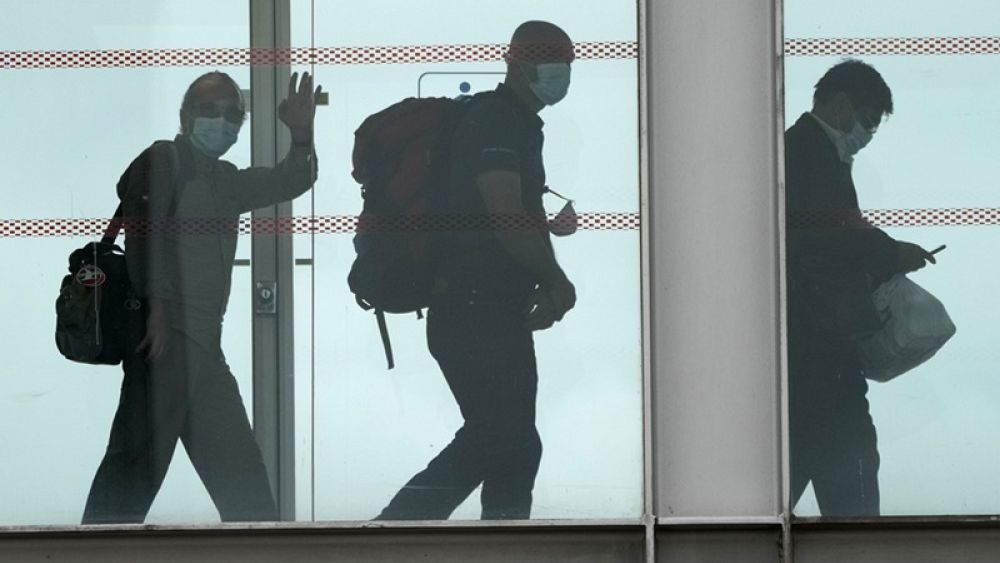
The European Union has evacuated the bulk of its diplomatic corps and local staff from Kabul but will keep a small “core team” on the ground to oversee the process until it’s finally completed.
The majority of EU personnel, made up of diplomats, experts and administration officials with EU citizenship, has already left the country, the Commission confirmed on Thursday.
Some of them were personally welcomed last week by EU Commission President Ursula von der Leyen and European Council President Charles Michel at their arrival on the Torrejón Air Base, in Madrid.
A Commission spokesperson said a “core team” will remain stationed inside Kabul airport for the time being, although he didn’t specify who was part of this entourage due to security reasons.
“[The core team] will be on the ground as long as necessary in order to complete the evacuation operations. And it’s a very small core team,” said spokesperson Peter Stano.
Additionally, the bloc has managed to evacuate over 400 members of the local staff, mainly Afghan nationals, who were working for the EU delegation in Kabul until the Taliban took over the country. This group includes employees and their family members.
Afghans who have worked or collaborated with Western governments are at high risk of being the target of reprisal and punishment by the Taliban.
The evacuated Afghan nationals are not legally entitled to stay and work inside the European Union and will have to be resettled across the bloc. But this reallocation won’t be mandatory: it has to come through a voluntary offer from an EU country.
“[The Afghan nationals] are in the process of being transferred to member states who offered places. But we are still in ongoing contacts with the member states to make sure that there will be all of them taken care of,” explained the spokesperson, without naming potential host countries.
“It’s an ongoing process. It’s a very intense process in which we are involved with the member states. But when it comes to EU local staff from Kabul, I think the member states are very clear that they are willing to help.”
Evacuation efforts have accelerated in recent days as the US Administration of President Joe Biden refused to extend the withdrawal of troops beyond 31 August.
European countries have said that, without American support, it would be impossible to guarantee the safety of their citizens, many of whom flocked to the airport in search of an exit.
Countries like Belgium, Poland, Czech Republic, Germany and Canada have already completed the evacuation operations of their diplomatic staff. Others, like the United Kingdom and France, continue to work against the clock before the American departure.
Until this month, the EU’s role in Afghanistan was mostly focused on promoting and strengthening democratic institutions, rule of law, governance, security and human rights. The EU Delegation in Kabul, which is headed by Ambassador Andreas von Brandt, also took part in the now-failed peace process between the Taliban and the Western-backed government of former President Ashraf Ghani.
Ambassador von Brandt took to Twitter on Thursday afternoon to announce he had “made it home” safely and thanked the French Air and Space Force for its assistance.
Despite the geopolitical defeat of the NATO alliance, Brussels says it will continue to provide humanitarian assistance to the vulnerable population of Afghanistan. On Tuesday, following a G7 virtual meeting, President von der Leyen announced a package of aid worth €200 million.
Since 1994, the EU’s Civil Protection and Humanitarian Aid department (ECHO) has provided a total of €725.5 million to those affected by conflicts in Afghanistan.